It is always with mixed feelings that the elephant orphans leave the Nursery forever, to embark on the next phase, over a span of 8 to 10 years returning them back to the wild elephant community of a Protected National Park, large enough to ensure a quality of life in terms of space when grown
It is always with mixed feelings that the elephant orphans leave the Nursery forever, to embark on the next phase, over a span of 8 to 10 years returning them back to the wild elephant community of a Protected National Park, large enough to ensure a quality of life in terms of space when grown. That place is Tsavo East National Park, 5,000 sq. miles in extent, of which the Northern Area encompasses 3,000 sq. miles of pristine wilderness, closed to everyday tourism due to its remoteness and aridity. However, it is prime elephant habitat and at one time was the jewel in the crown of Tsavo, home to some of the greatest tuskers Africa has ever known. 


Three large Safari Trucks had been parked at the Nairobi Nursery Loading Bays for five days prior to the 16th June, 2008, the day set aside for that important journey, so that the three orphans could become accustomed to entering the vehicles. Lenana and Chyulu were compliant, but Makena thought otherwise, perhaps because she associated the presence of trucks at the Loading Bay with the sudden absence of so many of her older Nursery loved ones – Naserian, Lualeni, and Sian to name three who had been Mini Nursery Matriarchs all of whom had taken Makena into their large elephant hearts when she was just a baby.
It was an early start on the morning of the 16th . Preparations begun at 4.30 a.m., because milk had to be mixed for the journey, vegetation cut and hung in the trucks for the elephants to snack on as they went, and the personal possessions of the Keepers who would be accompanying them, loaded. Makena had to be given a shot of Stressnil to ensure that she was compliant when the moment of loading arrived.
When the moment of loading arrived, Lenana and Chyulu both went into the first truck to take their milk, after which the tail-gate was closed. However, Makena still had doubts and although she went half in, it was obvious that she was contemplating reversing out again. Robert Carr-Hartley towed the truck forward a pace or two to leave a void behind her and the ramp, forcing her to remain where she was as that tailgate was closed and by 5.15 a.m., before the sun topped the Eastern horizon, the two huge Safari Trucks carrying their precious cargo slowly drew out of the Nursery compound, all the Staff waving the elephants and their human family a fond farewell, a few with wet eyes, because saying goodbye is always an emotional event!
The elephants were fortunate to be able to travel in the cool of the day, but unfortunate in that the deviations on the Mombasa road were grueling, and the Kanziku stretch as they approached Ithumba, even more so. By 1 a.m., however, they had arrived at their destination. The lorries were reversed up against the Unloading Bays - favourite early morning scratching places for the Ithumba elephants before heading out to feed each day. Lenana and Chyulu had traveled well, and emerged calmly to enjoy their milk feed as the second truck carrying Makena was negotiating into position. As soon as its tailgate was opened, they rushed to greet Makena as she was coming out, obviously relieved that she was with them at the other end. However, Makena had taken the strain on the journey, and was clearly confused and disoriented as well as being visibly subdued even refusing to take her milk. The Nairobi Nursery had been her world for the past 3 years, for she had been a baby of just 3 months when she first came in and had now past her third birthday. The fact that her world had been turned upside down had taken an emotional toll on her. Lenana and Chyulu had been older when orphaned, so both could probably remember another wilderness world that was foreign to Makena.
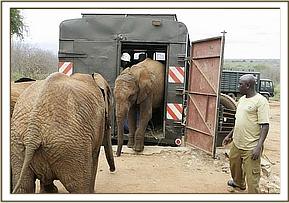
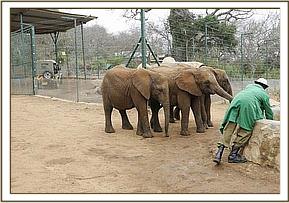
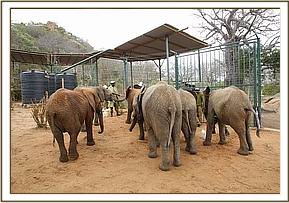
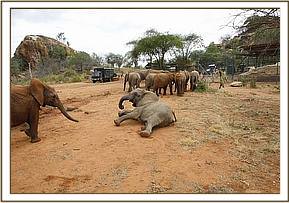
The Ithumba elephants, numbering 27 in all, were not actually present when the three newcomers arrived, but they arrived soon afterwards, and in a rush!. As always the reunion was vibrantly exuberant, the joy and excitement tangible, with trumpets, urinating and trunk touching, as the newcomers were given the warmest of welcomes into a new and larger “family”. Recognition by those that had shared Nursery time with the new arrivals was instant. Sian, who was the last to share a stable with Chyulu, rushed to her side, and remained glued to her thereafter, Naserian, and Lualeni comforted Makena, while Loijuk was enthusiastic in embracing Lenana. All the others crowded around, pushing and shoving to get close, laying trunks lovingly over their backs, while yet others rolled on the ground, and would have stood on their heads had they been able!
Thirty young elephants were extremely happy that day, as they escorted Lenana, Chyulu and Makena out for their first foragy into the bush to browse. That excitement was obviously detected by others further afield, for as the orphans were heading back to their Night Stockades, 4 very large wild bulls turned up to monitor what was going on. The orphaned herd walked right past them and so, within hours of touching base at Ithumba, Lenana, Chyulu and Makena were treated to what for the others was a rare sight for a very long time – members of the wild community. 

Now, the wild elephants have moved in en masse. Their footprints and dung litter all the roads, and they even turn up to drink at the Ithumba Camp, utilize the stockade trough and Orphans’ mudbath, and regularly meet with the older orphans when they separate from the Keepers and the youngsters to travel further afield and fraternize with wild peers. The presence of the orphans, and the confidence they have been able to impart to their wild peers who have long viewed humans as anathema to be avoided at all costs, is nothing short of miraculous. Aside from putting Kenya on the map as a prime tourist destination through the international publicity they have generated through the BBC series “Elephant Diaries” (voted the most popular series of the year) and the prestigious CBS 60 Minutes Program, our elephant orphans have brought the wild herds back to an area that all the elephants abandoned en masse for three decades due to the poaching holocaust of the late 70’s, 80’s and early 90’s. Hence, another 3,000 square miles of pristine wilderness is, once again, elephant country that will benefit from their presence, becoming again what it was in the early days, the jewel in the Crown of Tsavo, and home to some of the greatest Tuskers Africa has ever known.
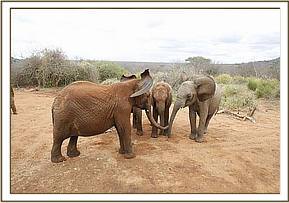
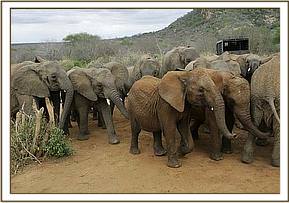
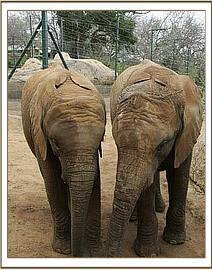
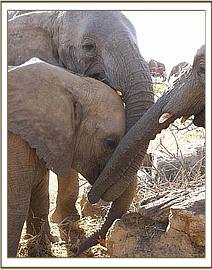
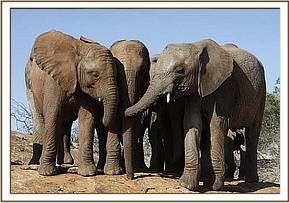
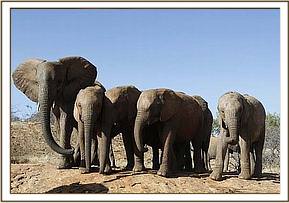
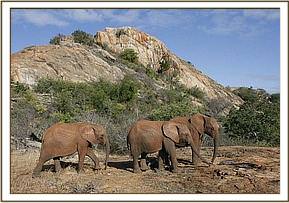
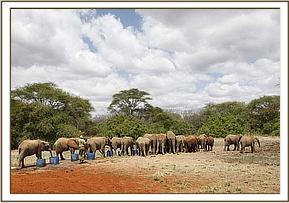
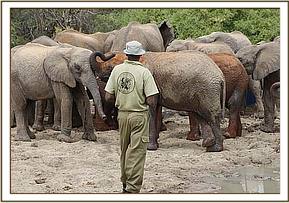
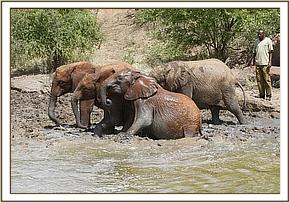
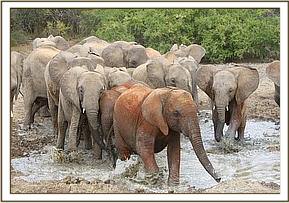
The next morning, Makena was herself again and had settled in having shared the night in the company of Sian, Naserian and Loijuk. And before Robert Carr Hartley left, he visited a nearby waterhole and was treated to a magnificent view of a huge male leopard and, more exciting still, a very large Tusker with magnificent Ivory, who was back where he belonged, in the Northern Area of Tsavo East National Park, the place the late David Sheldrick viewed as Heaven on Earth.. 
